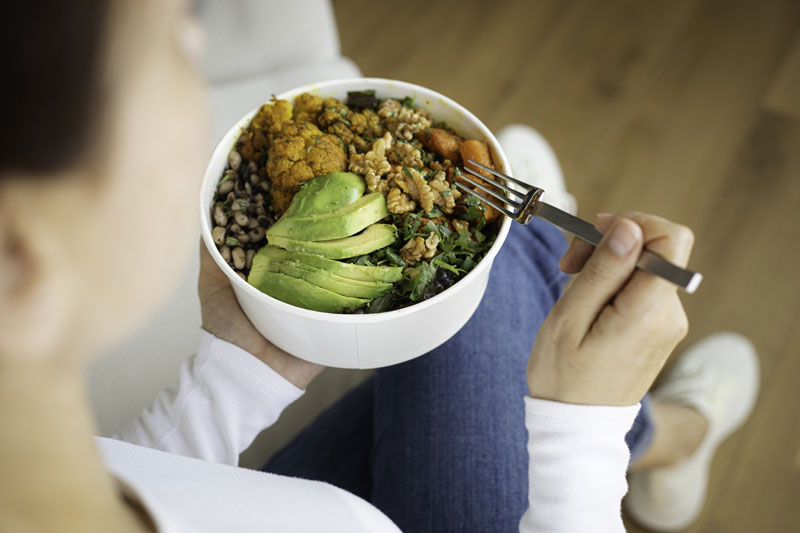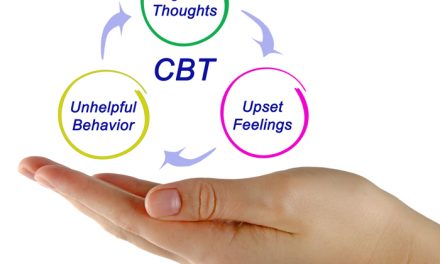This blog post is the third in our series dedicated to helping you make healthy decisions about what you do and do not eat. Eating healthily is, of course, important for everyone, but making good choices around food can be particularly crucial to a person in recovery from a substance use disorder. Good nutrition supports your ongoing sobriety. Less healthful foods can put your sobriety at risk.
In the first entry in this series, we considered the importance of hydration and choosing good breakfast options. In the second entry, we focused on lunch and afternoon snacks. In this post, we turn our attention to dinner. We also have some suggestions for your late-night snack.
A reminder: We are not nutritionists. For more specific advice about making good choices around food, we recommend talking with your doctor.
Decisions at Dinnertime
Many people—perhaps you—struggle on a near-daily basis to decide what to have for dinner. By the time the final meal of the day rolls around, we tend to be tired, and deciding what to have for dinner can seem unreasonably difficult. And if the decision-making seems challenging, the actual process of cooking can seem extremely daunting. That can lead to frequent reliance on heading out to a restaurant or turning to takeout or delivery options.
Of course, it is possible to make healthy choices even when someone else is doing the cooking (and the occasional indulgence is okay, too). But we want to suggest some strategies that might make it easier for you to regularly handle dinner in a healthy way in your own kitchen.
First, consider planning (and even prepping) your meals in advance. Having a list to guide you through the week takes the daily decision-making out of play. Spending a little time once a week to make a plan can reduce the stress you might currently be feeling around dinner.
Another reason people struggle with dinner is that they do not really know how to cook more than a few dishes. That’s a challenge that can be overcome simply by finding some easy recipes and giving them a try. To get you started, here is a list of quick and healthy dinner recipes—and here is a similar list for vegetarians.
Your dinner menu should include the same sorts of foods that serve you well throughout the day: leafy greens, colorful fruits and veggies, lean proteins, and whole grains. These are the kinds of foods that support sobriety on an ongoing basis.
One more suggestion: If you can, consider trying to gather around a table to enjoy dinner with family or friends. It might sound old-fashioned in our fast-paced world, but building strong relationships is a key part of protecting your sobriety—and sitting down for a meal with others is a great way to do that.
Pick Your Late-Night Snack Carefully
A late-night snack sounds like an unhealthy indulgence. But it doesn’t have to be.
There are a couple of key things to keep in mind when enjoying a snack before bed. First, the ideal time to have a late-night snack is about an hour before bedtime. That is also a good time to turn off your screens for the night, so you might think of those two things together. Having your snack and powering down your devices can go hand in hand to help you get the rest you need.
Second, make sure your snack does not include caffeine or significant amounts of sugar. You also want to avoid foods that are spicy, heavy, or both.
Better choices include whole grain toast with peanut butter, kiwi slices, pistachios, or even smoked salmon cream cheese rollups. These and other foods provide magnesium, iron, zinc, omega-3 fatty acids, protein, and more. All of those nutrients have been associated with promoting more restful sleep. Here is a list of good options for snacking before bed.
Making One Healthier Choice is a Great Way to Get Started
We have discussed the food choices you might make throughout the day to support your overall health and your sobriety. And if you have been reading the series from the beginning, you might be feeling a little bit overwhelmed.
We get it—and we want to remind you that you do not have to make every change we have suggested all at once. Start small by making one positive change in your diet. Once that becomes a habit, you might be ready to make another positive change—and so on. As time goes on, your collection of small changes can add up to a big change in your overall relationship with food.
Now is the Time to Reclaim Your Sobriety
At The Aviary Recovery Center—located near St. Louis, Missouri—we help individuals overcome substance use disorders so that they can reclaim their sobriety and their lives. We have been recognized as one of the best substance use treatment centers in the country, which means you can count on us for evidence-based care supported by our expertise, experience, and empathy.
Chew on this: A substance use disorder upends your entire life. Getting the help you need lets you rebuild and move forward. When you are ready to get started, we are ready to help.
(314) 464-0222. We’re here to help.










